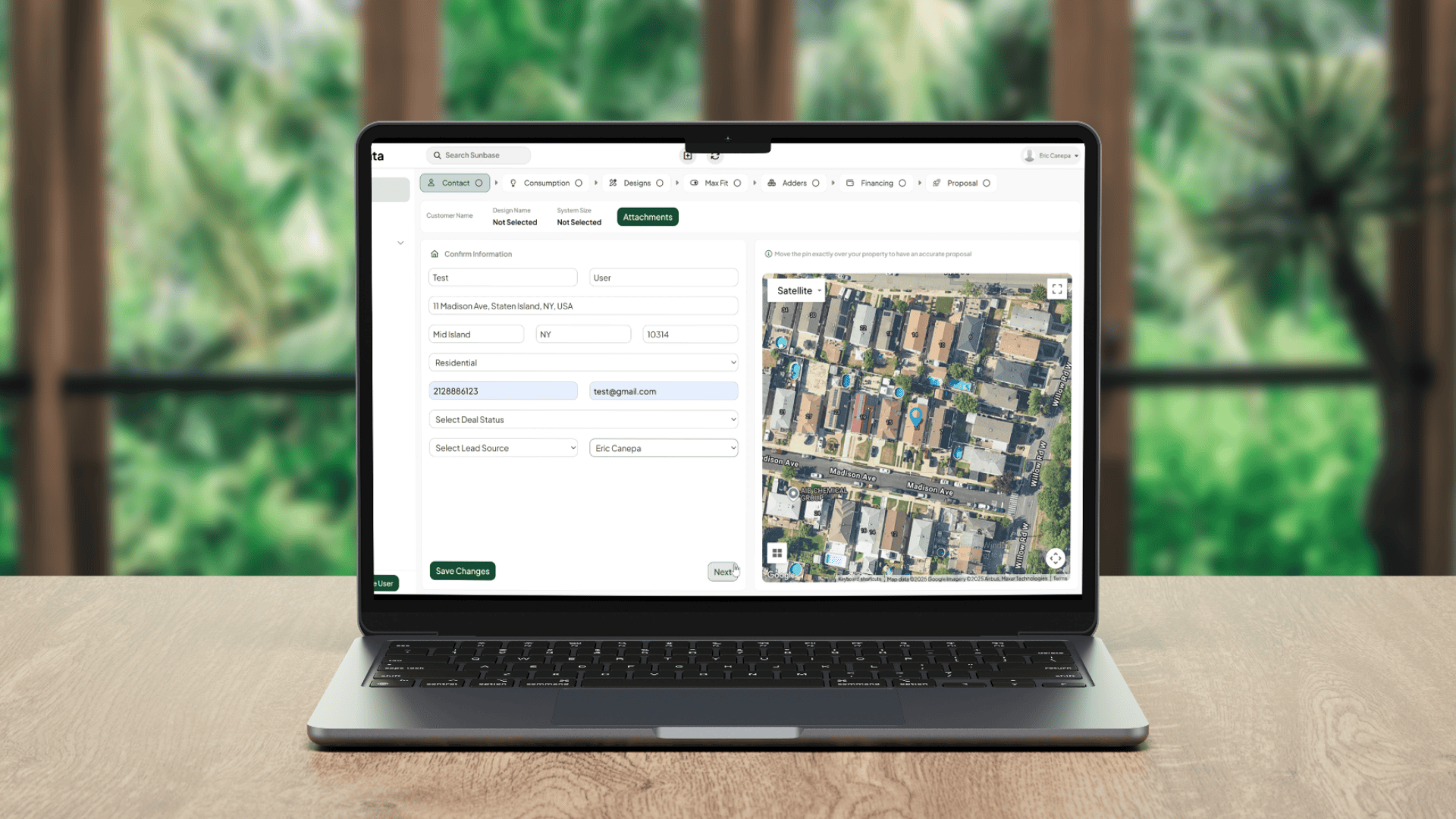March 24, 2022
A widespread misunderstanding about CRM is that it’s merely a digital address book for storing names and numbers.
In reality, a well-selected CRM can be the base of your business, helping teams remain organized, understand customers better, and foster relationships that drive growth.
It monitors every interaction, finds new opportunities, and makes follow-ups easier. Of course, like any tool, it has its own set of challenges. Complexity and learning curves can make CRM adoption tricky.
Knowing both the advantages and disadvantages matters because the right CRM and approach can make all the difference in how smoothly your business operates and how well it connects with customers.
Is CRM Worth It? Advantages and Disadvantages Explained
In this article, we will be discussing the advantages and disadvantages of Customer Relationship Management (CRM) and its impact on businesses. We will examine the advantages and disadvantages of implementing a CRM strategy and provide insights into how businesses can use CRM to improve customer satisfaction, loyalty, and sales.
Additionally, we will explore some common challenges businesses face when implementing a CRM system and provide practical tips for overcoming those challenges. Whether you are a small business owner or a marketing professional, this article will provide valuable insights into how CRM can help you achieve your business goals.
Key Takeaways
- Customer Relationship Management (CRM) is more than software; it’s a strategy to manage customer interactions, improve satisfaction, and build long-term loyalty.
- Major advantages of CRM include improving customer satisfaction, retention, communication, sales, and marketing by using personalization and data insights.
- Common disadvantages include high costs, complex tech, employee resistance, data privacy concerns, and overreliance on technology.
- Achieving success with CRM requires a clear implementation strategy, employee training, data security, and regular performance reviews.
- CRM provides a competitive advantage when used strategically, aligning industry needs and balancing technology with personalized human interaction.
I. Explanation of CRM
Customer or customer relationship management software, commonly referred to as CRM, is a strategy that businesses use to manage their interactions with their customers.
The objective of CRM is to improve customer satisfaction and loyalty by providing a personalized experience for each customer, regardless of the industry in which the business operates. CRM encompasses a variety of techniques, technologies, and practices that enable businesses to understand their customers better.
By tracking customer interactions, preferences, and behaviors, businesses can anticipate customer needs and tailor their products or services to meet those needs. The ultimate goal of CRM is to foster long-term relationships with customers that are mutually beneficial.
II. Advantages of CRM
1. Improved customer satisfaction
CRM can significantly improve customer satisfaction by providing a personalized experience to each customer. With a CRM system, businesses can track customer interactions and preferences, which helps them tailor their products and services to meet individual customer needs.
This level of personalization can lead to increased sales team customer loyalty and positive word-of-mouth advertising. In addition, CRM systems offer customer relationship management advantages that enable businesses to resolve customer issues more quickly and effectively.
By providing customer service representatives with access to comprehensive customer information, businesses can better understand and respond to customer complaints and inquiries. This can lead to faster issue resolution and more satisfied customers.
2. Increased customer retention
By using data collected using a CRM system to track customer interactions and preferences, businesses can identify opportunities to increase customer retention. For example, businesses can use customer data to identify customers who are at risk of leaving and take steps to retain them, such as offering personalized incentives or providing additional support.
Furthermore, CRM systems can help businesses build long-term relationships with their customers. By regularly engaging with customers through customer relationship software and providing personalized experiences, businesses can increase customer loyalty and reduce churn rates.
3. Better communication
One of the key benefits of CRM is improved communication between employees and customers. With a centralized customer database, employees can access up-to-date customer information from anywhere, at any time. This can help businesses respond more quickly to customer service inquiries and provide more accurate information.
CRM systems can also help businesses track customer interactions across multiple channels, such as email, social media, and phone. This enables businesses to provide a consistent customer experience, regardless of the channel customers use to interact with the business.
4. More efficient sales process
CRM can help businesses streamline their sales processes and improve their overall efficiency. By automating routine tasks such as data entry and lead management, sales teams can spend more time engaging with potential customers and closing deals.
Furthermore, CRM systems can provide sales teams and customer service teams with real-time insights into customer behavior and preferences. This enables sales teams to tailor their pitches to individual customers and increase their chances of closing deals.
5. Enhanced marketing efforts
Finally, CRM systems can significantly enhance marketing efforts. By analyzing customer data, businesses can identify which customers are most valuable and focus their marketing efforts on those loyal customers.
In addition, CRM systems can help businesses create targeted marketing campaigns that are tailored to individual customer needs and preferences. This can lead to increased customer engagement and higher conversion rates.
Overall, CRM offers numerous advantages for businesses, from improved customer satisfaction and increased retention to more efficient sales processes, customer contact management, and enhanced marketing efforts. By implementing a CRM strategy, businesses can build long-term relationships with their customers and gain a competitive edge in their industry.
Unlock your business potential by exploring the top benefits of CRM!
III. Disadvantages of CRM
Despite the numerous benefits that CRM can offer to businesses, there are also several potential advantages and disadvantages of CRM to consider. In this section, we will discuss some of the most significant disadvantages of CRM.
1. High implementation costs
One of the biggest drawbacks of implementing a CRM system is the cost. Purchasing a CRM system can be expensive, with costs quickly adding up due to hardware, software, and implementation fees.
Additionally, there are ongoing costs associated with maintaining and upgrading the system, as well as training employees to use it effectively.
2. Complex technology
CRM systems can be complex and challenging to implement, particularly for small businesses with limited IT resources. The software often requires a high degree of customization and integration with existing systems, which can be time-consuming and costly.
As a result, many businesses may struggle to fully realize the benefits of using CRM solutions due to the complexity of the technology.
3. Resistance to change
Implementing a CRM system often requires changes in business processes, which can be challenging for employees to adapt to. Resistance to change is a common problem when implementing new technology, and CRM software is no exception.
Employees may be hesitant to adopt new processes and systems, potentially leading to slower adoption rates and reduced CRM system effectiveness.
4. Data privacy concerns
Another significant concern with CRM systems is data privacy. CRM systems store sensitive customer data, such as names, addresses, and payment information, which can be a target for hackers and cybercriminals.
A data breach can lead to significant reputational damage and legal liabilities for businesses. Businesses need to implement robust security measures to protect customer data and mitigate the risk of data breaches.
5. Overreliance on technology
Finally, another potential disadvantage of CRM is the overreliance on technology. While technology can improve efficiency and productivity, it should not replace human interaction entirely.
Overreliance on technology can lead to a lack of personal touch, which can harm customer relationships and lead to reduced customer satisfaction. Businesses need to strike a balance between technology and human interaction to ensure the best possible customer experience.
IV. Overcoming the Challenges of CRM Implementation
Implementing a CRM system can be a daunting task for businesses. From the initial investment in software and hardware to the ongoing maintenance and support, there are many challenges to consider.
However, with careful planning and the right approach, businesses can overcome these challenges and maximize the benefits of a CRM system. In this section, we will discuss some strategies for overcoming the challenges of CRM implementation.
1. Create a clear implementation plan
One of the most critical steps in successful CRM implementation is creating a clear and comprehensive implementation plan.
This plan should include a detailed timeline, budget, and goals for the CRM system. It should also outline the roles and responsibilities of each team member involved in the implementation process.
Creating a clear implementation plan can help ensure that everyone involved is on the same page and understands the scope of the project. It can also help identify potential roadblocks and allow for adjustments to be made along the way.
2. Provide employee training and support
Another crucial aspect of successful CRM implementation is providing employee training and support.
CRM systems can be complex and require a significant investment of time and resources to learn. Providing comprehensive training to employees can help them feel more comfortable and confident using the system.
Additionally, ongoing support is essential to ensure that employees have access to the resources they need to use the CRM system effectively. This can include training resources, help desk support, and regular check-ins to ensure that employees are using the system correctly.
3. Ensure data privacy and security measures
Data privacy and security are critical concerns for businesses implementing a CRM system. CRM data and systems can contain sensitive customer data, and if this data falls into the wrong hands, it can lead to significant reputational damage and legal liabilities.
To ensure data privacy and security, businesses must implement robust security measures, such as encryption, firewalls, and access controls. Additionally, they must establish policies and procedures for data handling and ensure that all employees are trained on these policies.
4. Regularly evaluate and adjust the CRM system
Finally, to ensure that the CRM system is delivering the expected benefits to existing customers, businesses must regularly evaluate and adjust the system. This includes monitoring key performance indicators (KPIs) such as customer satisfaction, sales growth, and productivity.
Based on the results of these evaluations, businesses may need to adjust the CRM system to meet their needs better. This could include adding new features, changing processes, or updating training materials.
Look into the top 10 advantages of CRM and why your company needs it now.
In a nutshell: Is CRM Worth it?
Simply put, CRM has the potential to be transformational, but there are some hurdles along the way.
On the bright side, it assists businesses in streamlining processes, tracking customer interactions, and increasing sales. However, on the flip side, setup costs, complexity, and adoption challenges are significant factors to consider.
And here’s the catch: generic CRMs often fall short. Industries now need customized solutions designed for their specific workflows.
For example, in the solar industry, Sunbase Solar CRM offers industry-specific tools that make it easy to create proposals, monitor projects, and manage customers efficiently, features that a generic system can't provide.
Sunbase CRM Software: Designed for Solar!
Sunbase CRM is a cloud-based customer relationship management (CRM) platform that helps companies manage client data, sales, and marketing.
It offers a range of tools to help your sales professionals successfully perform marketing automation activities, including contact management, opportunity tracking, quotes and invoicing, project management, case management, and more.
Businesses can store all their customer data in one location using Sunbase CRM. The programme also simplifies managing marketing campaigns and tracking sales possibilities. Tools for managing projects and support problems are also available through Sunbase CRM.
Check out our blog post on Sunbase CRM to learn more!
Conclusion
In conclusion, CRM can bring numerous benefits to businesses, including improved customer satisfaction, increased customer retention, better communication, more cost-effective sales processes, and enhanced marketing efforts.
However, there are also potential challenges associated with implementing CRM, including high implementation costs, complex technology, resistance to change, data privacy concerns, and overreliance on technology.
To overcome these challenges, businesses should create a clear implementation plan, provide employee training and support, ensure data privacy and security measures, and regularly evaluate and adjust the CRM system. By taking these steps, businesses can maximize the benefits of CRM while minimizing potential drawbacks.
About Sunbase
Your solar sales cycle deserves a power upgrade! Sunbase Solar CRM: One platform, more installs, less hassle.
What are you waiting for? Book a demo with Sunbase today!
FAQ's
1. What are the key benefits of using a CRM in sales and marketing?
A CRM helps sales and marketing coordinate by tracking leads, automating follow-ups, and consolidating customer data. It improves lead nurturing, speeds up sales, and personalizes campaigns with customer insights. Better visibility into the pipeline and customer actions allows teams to prioritize high-value prospects, increase conversions, and deliver targeted messages that support growth.
2. What are the risks of using a generic CRM instead of an industry-specific one?
The biggest risk is misfit, as generic CRMs lack industry-specific features, leading to complicated workarounds, wasted time, and underused software. Businesses face higher costs, lower efficiency, and scaling issues. Industry-specific CRMs provide tools for workflows, compliance, and customer needs, simplifying implementation and increasing ROI.
3. What industries benefit most from CRM?
CRM is most valuable in industries where building customer relationships and managing long sales cycles are key, such as HVAC, roofing, financial services, real estate, healthcare, retail, solar, renewable energy, and construction.
I agree to receive marketing messaging from Sunbase at the phone number provided above. I understand data rates will apply, and can reply STOP to OPT OUT.











